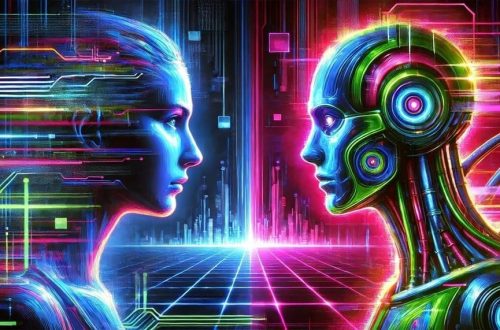In recent years, the landscape of artificial intelligence has undergone transformative changes, making powerful AI tools accessible to the general public. Among these advancements, ChatGPT has emerged as a pivotal innovation, democratizing the benefits of AI. The advent of free versions of chatgbt has opened new avenues for users worldwide, offering a glimpse into the future where advanced AI capabilities are at everyone’s fingertips.
The Evolution of ChatGPT
ChatGPT, developed by OpenAI, is based on the GPT (Generative Pre-trained Transformer) architecture. The journey began with GPT-1, followed by significant improvements in GPT-2 and GPT-3, each iteration enhancing the model’s ability to understand and generate human-like text. These advancements culminated in GPT-4, which powers the latest versions of ChatGPT, delivering unprecedented performance in natural language understanding and generation.
Initially, access to such advanced AI models was limited, primarily available to researchers and large enterprises willing to pay for premium services. However, recognizing the potential benefits of widespread access, OpenAI has gradually introduced free tiers, making ChatGPT available to a broader audience.
Accessibility and Inclusivity
The introduction of free ChatGPT versions has significantly lowered the barriers to entry for AI usage. Students, educators, developers, and small business owners, who may not have the resources to afford premium AI services, can now leverage ChatGPT for various applications. From assisting in homework and generating content ideas to providing customer support and enhancing productivity, the potential uses are vast and varied.
This move towards inclusivity ensures that people from diverse socioeconomic backgrounds can benefit from cutting-edge AI technology. It fosters an environment where innovation is not confined to well-funded organizations but is accessible to anyone with an internet connection.
Educational Empowerment
One of the most profound impacts of free ChatGPT is in the field of education. Students worldwide can use ChatGPT as a learning companion, helping them understand complex subjects, generate creative writing pieces, and practice language skills. For educators, it serves as a tool to create engaging lesson plans, provide personalized feedback, and even simulate interactive learning experiences.
Furthermore, the availability of free ChatGPT aids in bridging the educational divide, offering quality learning support to students in underserved regions who might lack access to traditional educational resources.
Enhancing Creativity and Productivity
Creative professionals, including writers, artists, and marketers, have found ChatGPT to be an invaluable tool. It assists in brainstorming sessions, generating creative content, and refining ideas. The ability to quickly produce drafts, explore different writing styles, and receive instant feedback accelerates the creative process, allowing professionals to focus on refining their craft.
In the business world, ChatGPT enhances productivity by automating routine tasks such as drafting emails, generating reports, and managing customer inquiries. This frees up time for employees to focus on more strategic and creative aspects of their work, ultimately driving innovation and efficiency.
Ethical Considerations and Responsible Use
While the benefits of free ChatGPT are immense, it is essential to address the ethical considerations and potential risks associated with its use. OpenAI has implemented various measures to ensure the responsible deployment of ChatGPT. These include moderation tools to filter harmful content, usage policies to prevent misuse, and ongoing research to mitigate biases in the model’s responses.
Users are encouraged to use ChatGPT responsibly, understanding that while it is a powerful tool, it is not infallible. Critical thinking and human oversight are necessary to ensure the information generated is accurate and appropriate.





